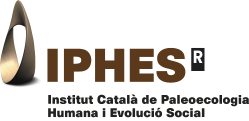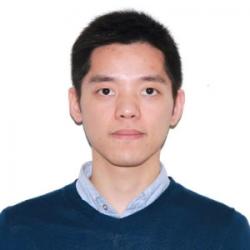Staff
Li, Weiya
Researcher
E-mail: wli@iphes.cat
Sponsor: MSCA-COFUND-2020

Weiya Li is a postdoctoral researcher at the IPHES-CERCA centre in Tarragona, Spain, under the Marie Curie Grant Programme (Horizon 2020) in co-funding with the Program Maria de Maeztu Unit of Excellence (State Research Agency of the Spanish Ministry of Science and Innovation).
In August 2020, he got his PhD degree at the Laboratory for Material Culture Studies at Leiden University, where he integrated microwear and starch grain analysis to investigate the Neolithic foodways in Central China. The results from this research have been presented at several international conferences (e.g., EAA and SAA) and published in several peer-reviewed, international journals, including Quaternary International, Journal of Archaeological Science-Reports, Archaeometry, and Lithic technology.
From November 2019 to October 2020, he also worked as a researcher at Leiden University. In that period, he was invited to join the Archaeological Project in northern Ethiopia, led by Prof. Willeke Wendrich (UCLA), as the specialist on stone objects. Since November 2020, he went on to work as a postdoctoral researcher at the University of Science and Technology of China (USTC), where he was the PI of two projects: 1) Functional study of ground stone tools associated with the Shuangdun Culture in the middle catchment of Huai River, China; 2) Study of damaged starch grains from Chinese Medicine and its application in Archaeology.
In addition to research, he co-supervised three Masters students’ internships and one Master’s thesis at Leiden University. He also acted as the teaching assistant or guest lecturer for several courses at Leiden University and USTC, including “Seminar Material Culture Studies: Crafts and Society”, “Material Culture 1” and “Archaeobotany”.
The project he plans to conduct at the IPHES is entitled “Origins of the earliest farmers in Central China: a lithic perspective”. Through the study of the ground stone and chipped tool assemblages, this research project proposes to explore whether it may possible to link the Neolithic farmers at the famous site of Jiahu in Central China and their ancestors through their stone toolkits.



